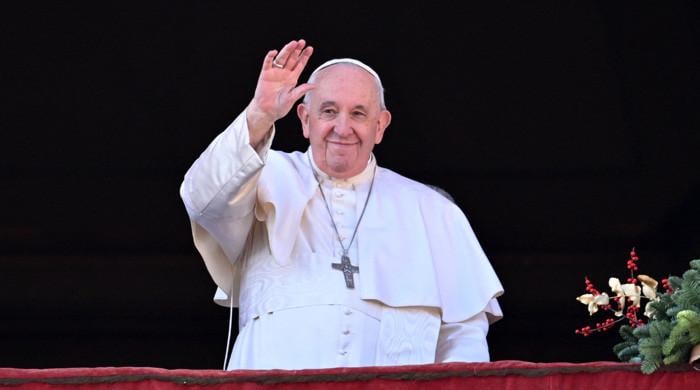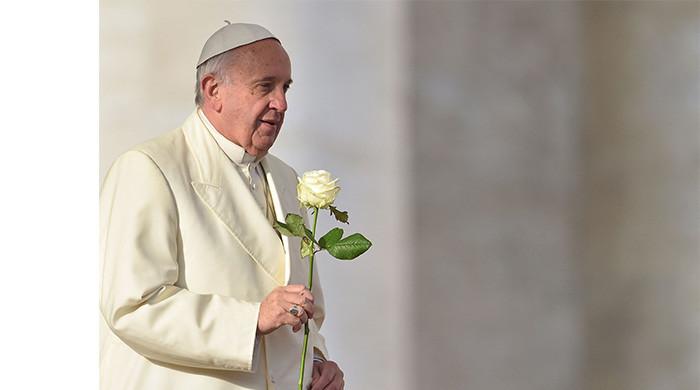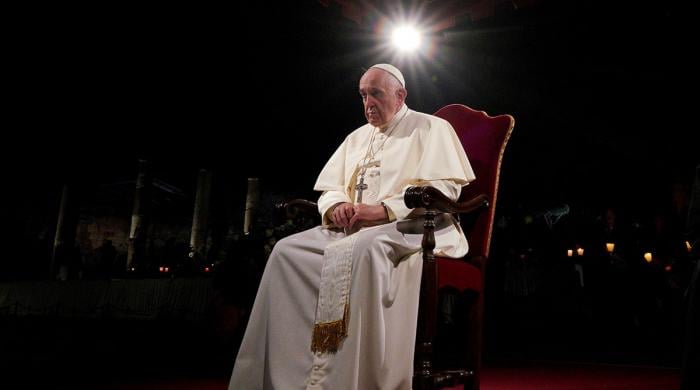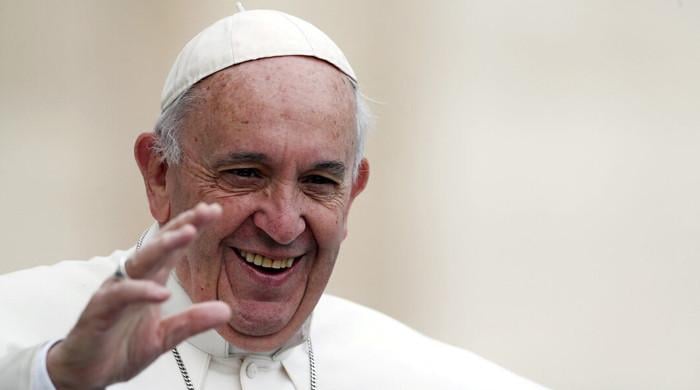No letup in Israeli strikes as highest number of Gazans martyred in 24 hours
United Nations agencies made an urgent plea for unrestricted emergency aid to enter food-, water-, and fuel-strapped Gaza
October 24, 2023
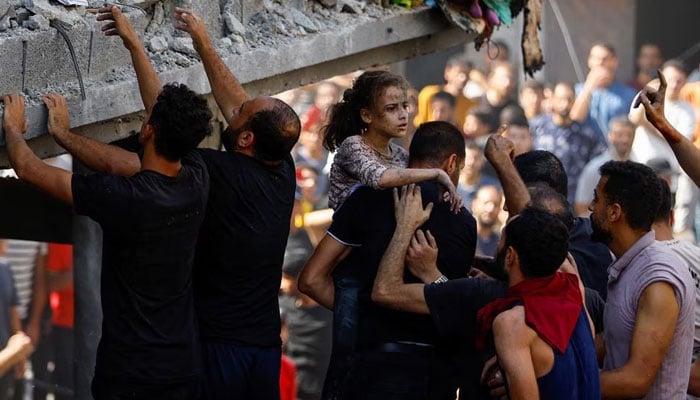
- America warns Israel against prolonged occupation of Gaza.
- Obama cautions Israel not to alienate generations of Palestinians.
- Hamas releases two more hostages as families call for ceasefire.
At least 50 more Palestinians have been killed in the Gaza Strip during the past hour, said Palestinian Health Ministry spokesperson Ashraf al-Qedra.
The development comes following a deadly 24-hour span when the occupied food-, water-, and fuel-strapped territory witnessed 700 deaths, which is the highest single-day toll since Israel started shelling. The streets have turned into cemeteries with hospitals grappling with a surging number of casualties, underscoring the urgent need for international attention and intervention in Gaza.
United Nations agencies made an urgent plea for unrestricted emergency aid to enter Gaza, stressing that the current delivery levels were inadequate to support the Palestinian population affected by the relentless Israeli bombardment.
The Israeli military claimed to have struck more than 400 Hamas fighters targets, resulting in the deaths of numerous fighters. Still, they acknowledged that eradicating Hamas, which launched a deadly cross-border attack on October 7, would require additional time.
Physicians in the war-torn Gaza Tuesday reported that alongside the war-wounded hundreds of patients are pouring into hospitals with symptoms of illnesses resulting from severe overcrowding and inadequate sanitation conditions in the shelters amid the heaviest-ever Israeli bombing.
This situation has arisen as a consequence of over 1.4 million individuals seeking refuge in temporary shelters due to the most intense bombardment ever witnessed in Israel.
Numerous humanitarian organisations have consistently raised concerns about a looming public health crisis in this densely populated Palestinian region.
Israel has told everybody living in the northern half of the 45km-long (28 mile) Gaza Strip to move south but its strikes have flattened districts throughout the enclave.
With all hospitals running out of fuel to power their generators, doctors have warned that critical equipment, like incubators for newborns, risk stopping.
The Hamas-run Health Ministry said 40 medical centres had suspended operations at a time when the bombardment and displacement are putting increased stress on the system.
It remains under an Israeli blockade that has led to a scarcity of electricity, potable water, and fuel, with only limited UN-supplied food and medical aid entering the area.
"The crowding of civilians and the fact that most schools used as shelters are housing lots of people, it's a prime breeding ground for disease to spread," said Nahed Abu Taaema, a public health doctor at Nasser Hospital in Khan Younis.
Despite the release of elderly hostages by Hamas on Monday night, the Gaza health ministry officials reported on Tuesday that at least 704 people were martyred in Israeli strikes in the besieged territory in the last 24 hours, with more than 140 lives lost overnight, as relentless bombing continued in Rafah and Khan Younis areas.
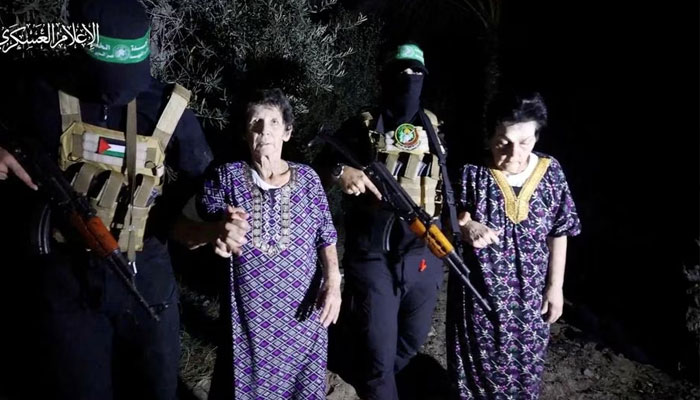
Palestinian death toll from Israel's attacks on Gaza has surpassed 5,791, including 2,360 children and 1,292 women, while 16,297 others were injured, according to the Health Ministry.
According to Al Jazeera’s Hani Abu Isheba, “This has put hospitals here on the brink of collapse. Hospitals here have never seen this level of injuries before.”
More than 60% of Gaza residents needed food aid even before the latest Israeli bombing campaign started on October 7 in the wake of deadly Hamas attacks inside Israel.
![[4/13]Displaced Palestinian kids, who fled their houses amid Israeli strikes, take shelter in a tent camp at a United Nations-run centre in Khan Younis in the southern Gaza Strip, October 24.—Reuters](https://www.geo.tv/assets/uploads/updates/2023-10-24/515830_3131197_updates.jpg)
Hospitals shutting down
The World Health Organization (WHO) warned that a third of Gaza hospitals were not operating. "We are on our knees asking for that sustained, scaled up, protected humanitarian operation," said WHO regional emergencies head Rick Brennan.
The private Indonesian Hospital, the biggest in north Gaza, said on Tuesday it had switched off everything except the last vital departments such as the Intensive Care Unit.
The only other hospital that had still been serving patients in northern Gaza, Beit Hanoun Hospital, stopped operations because of the intense bombardment of the town, the Palestinian Health Ministry said.
"If the hospital doesn't get fuel, this is going to be a death sentence against the patients in northern Gaza," said Atef al-Kahlout, the hospital's director.
‘Full dismantling’ of Hamas
Israel said on Tuesday dozens of Hamas fighters were left dead overnight in strikes on Gaza and that it had no intention of easing its bombardment of the besieged Palestinian enclave.
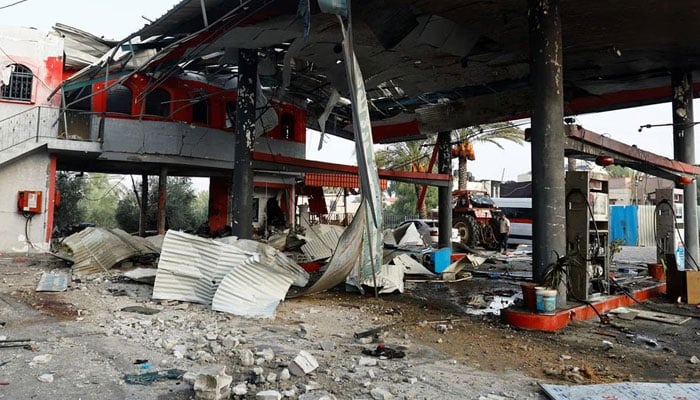
The US has urged Israel to provide more aid to Gaza, which is facing a humanitarian crisis due to intense Israeli attacks.
However, there is no immediate prospect of a ceasefire in the bloodiest episode of the Israeli-Palestinian conflict in decades. Israeli troops are awaiting orders for a ground invasion, complicated by hostage concerns.
The Israeli military said it had hit more than 400 targets in Gaza overnight and killed dozens of Hamas fighters, including three deputy battalion commanders.
Among the targets hit was a tunnel that allowed Hamas to infiltrate Israel from the sea and Hamas command centres in mosques, it said. Reuters could not immediately verify the report.
Wide areas of Gaza have been flattened by Israeli bombs, forcing more than one million residents to seek shelter elsewhere in the territory.
With food, clean water, medicine and fuel fast running out, the United Nations and aid agencies have warned of a humanitarian catastrophe and pleaded for supplies to be allowed in.
Earlier, Israeli Chief of Staff Lieutenant General Herzi Halevi suggested Israel had no intention of curbing its strikes.
"We want to bring Hamas to a state of full dismantling," Halevi said in a statement.
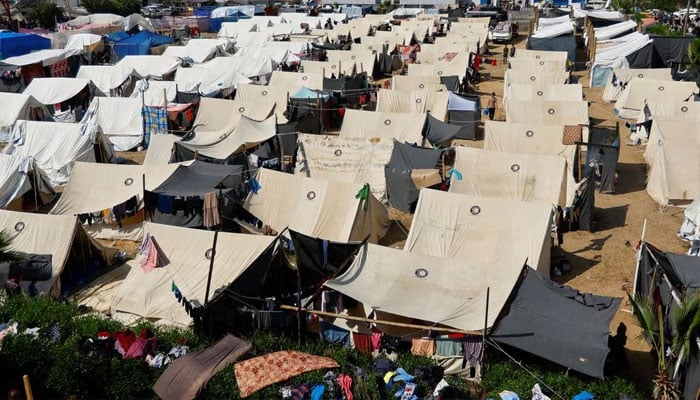
"We are well prepared for the ground operations in the south," he added. "Troops who have more time are better prepared, and that is what we are doing now."
Medical officials in Gaza said dozens of Palestinians were martyred or wounded overnight across the enclave, mostly in southern Gaza, due to the Israeli bombing. At least 15 houses were destroyed.
US to counsel Israeli forces
As Israel Defence Forces (IDF) prepare for a ground invasion of Gaza, US Marine Corps Lt Gen James Glynn, ex-commander of Marine Forces Special Operations Command, is set to counsel the Israeli forces on their current operations, according to a US official familiar with the matter.
The US official, who broke the news, revealed that Glynn, the deputy commandant for Manpower and Reserve Affairs, can offer advice on the "big picture" surrounding the Gaza conflict.
With decades of experience, including commanding Marine Forces Special Operations Command (MARSOC) and combat experience in Iraq.
National Security Council spokesperson John Kirby would not confirm Glynn’s position when asked whether Glynn would be advising the Israelis.
Instead, Kirby told reporters Monday that the Biden administration had sent to Israel “a few relevant military officers” who had “the kind of experience that we believe is appropriate to the sorts of operations that Israel is conducting and may conduct in the future.”
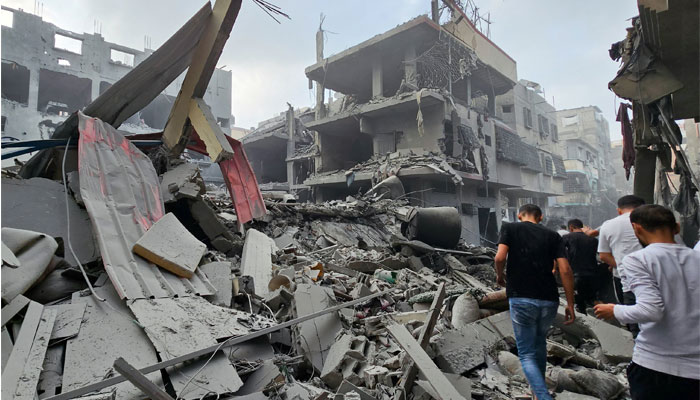
Obama cautions Israel against civilian casualties
Israel's military said it was preparing for "unrelenting attacks" to dismantle Hamas while former US president Barack Obama warned that "any Israeli military strategy that ignores the human costs could ultimately backfire."
In a rare commentary on a foreign policy dilemma, Obama, a former US president, cautioned Israel not to alienate generations of Palestinians by causing so many civilian losses in retaliation against Hamas.
"Any Israeli military strategy that ignores the human costs could ultimately backfire. Already, thousands of Palestinians have been killed in the bombing of Gaza, many of them children. Hundreds of thousands have been forced from their homes," Obama said in a statement posted on social media.
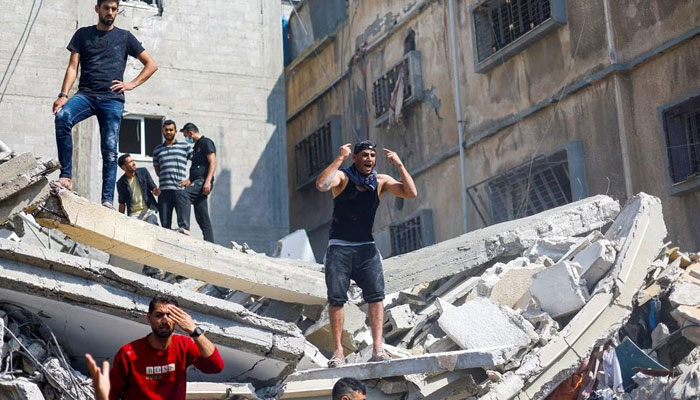
It was not immediately clear whether Obama coordinated his statement with Biden, who was his vice president. The White House did not immediately respond to a request for comment.
"The Israeli government's decision to cut off food, water and electricity to a captive civilian population threatens not only to worsen a growing humanitarian crisis," he added.
"It could further harden Palestinian attitudes for generations, erode global support for Israel, play into the hands of Israel's enemies, and undermine long-term efforts to achieve peace and stability in the region," he wrote in the statement published in Medium also condemned Hamas' attack and reiterated his support for Israel's right to defend itself.
Hamas releases two more hostages
Hamas on Monday freed two Israeli women among the more than 200 hostages taken during its October 7 attack. They were the third and fourth hostages to be released.
According to Reuters, Israeli Chief of Staff Lieutenant General Herzi Halevi issued a statement suggesting that Israel had no intention of curbing its strikes on the densely populated Gaza Strip and hinting that it was well prepared for a ground assault.
"We want to bring Hamas to a state of full dismantling," Halevi said late Monday.
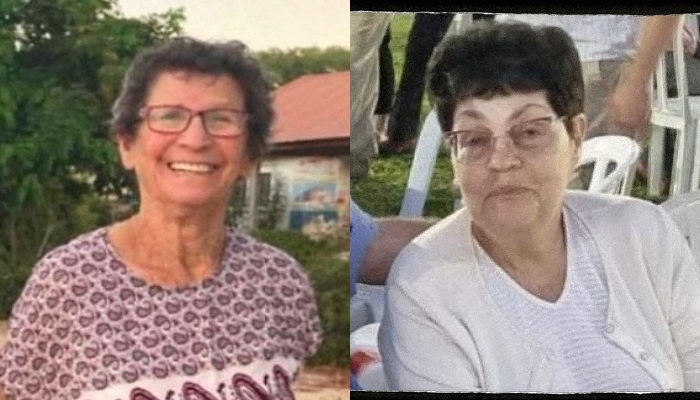
"The path is a path of unrelenting attacks, damaging Hamas everywhere and in every way. We are well prepared for the ground operations in the south," he added, referring to southern Israel, which abuts Gaza.
"Troops who have more time are better prepared, and that is what we are doing now."
In public, the US has stressed Israel's right to defend itself but two sources familiar with the matter said the White House, Pentagon and State Department have stepped up private appeals for caution in conversations with the Israelis.
A US priority is to gain time for negotiations to free other hostages, said the sources, who spoke before the hostage releases were announced on Monday.
Asked about the possibility of a ceasefire, US President Joe Biden said: "We should have those hostages released and then we can talk."
‘Serious’ economic damage
The war between Israel and Hamas could deal a "serious" blow to global economic development, the president of the World Bank told an investor conference in Saudi Arabia on Tuesday.
"What just happened recently in Israel and Gaza — at the end of the day you put all this together, I think the impact on economic development is even more serious," Ajay Banga said, adding: "I think we're at a very dangerous juncture."
Banga was speaking at the annual Future Investment Initiative, often referred to as "Davos in the Desert".
More than 6,000 delegates are registered for the three-day event that will feature appearances by global banking chiefs and the presidents of South Korea, Kenya and Rwanda, organisers say.
Fears of regional conflict heighten
The shocking violence in Israel and Gaza stands in stark contrast to the vision of a more stable and prosperous Middle East championed by Saudi Arabia, which this year rebuilt ties with Iran and was in talks towards recognising Israel before the fighting broke out.
Saudi Arabia has in recent weeks condemned violence against civilians in Gaza and affirmed its support for the Palestinian cause.
A source familiar with discussions on possible normalisation with Israel told AFP this month that the process had been paused.
Yasir al-Rumayyan, governor of the deep-pocketed Saudi Public Investment Fund, referred only obliquely to the Israel-Hamas war in his comments on Tuesday, though he did warn about challenges presented by high-interest rates.
"As central banks have tightened monetary policy in an effort to slow inflation, businesses and governments around the world have been adjusting to this new reality. This has been the fastest rate increase since the early 1980s and has caused significant and unpredictable disruptions," he said.
Yet he voiced optimism that "even in a high interest rate environment we can see the acceleration of growth and productivity".






